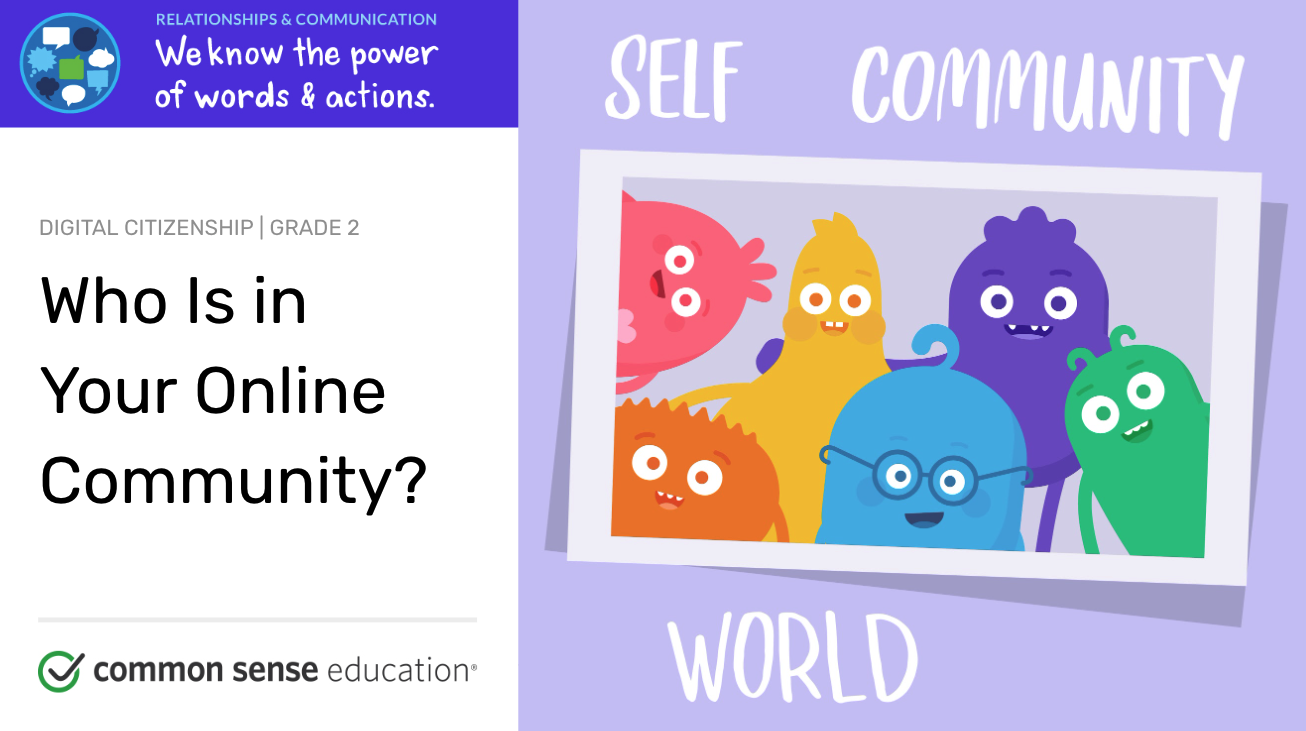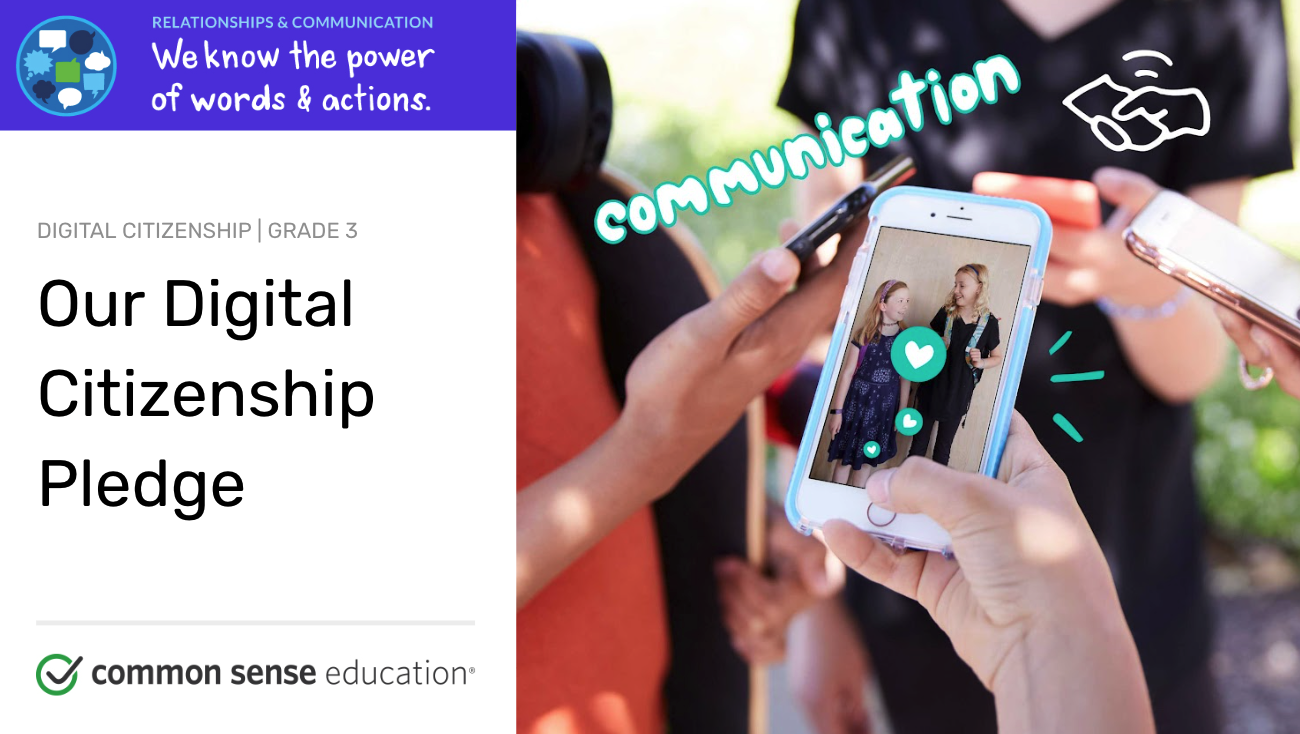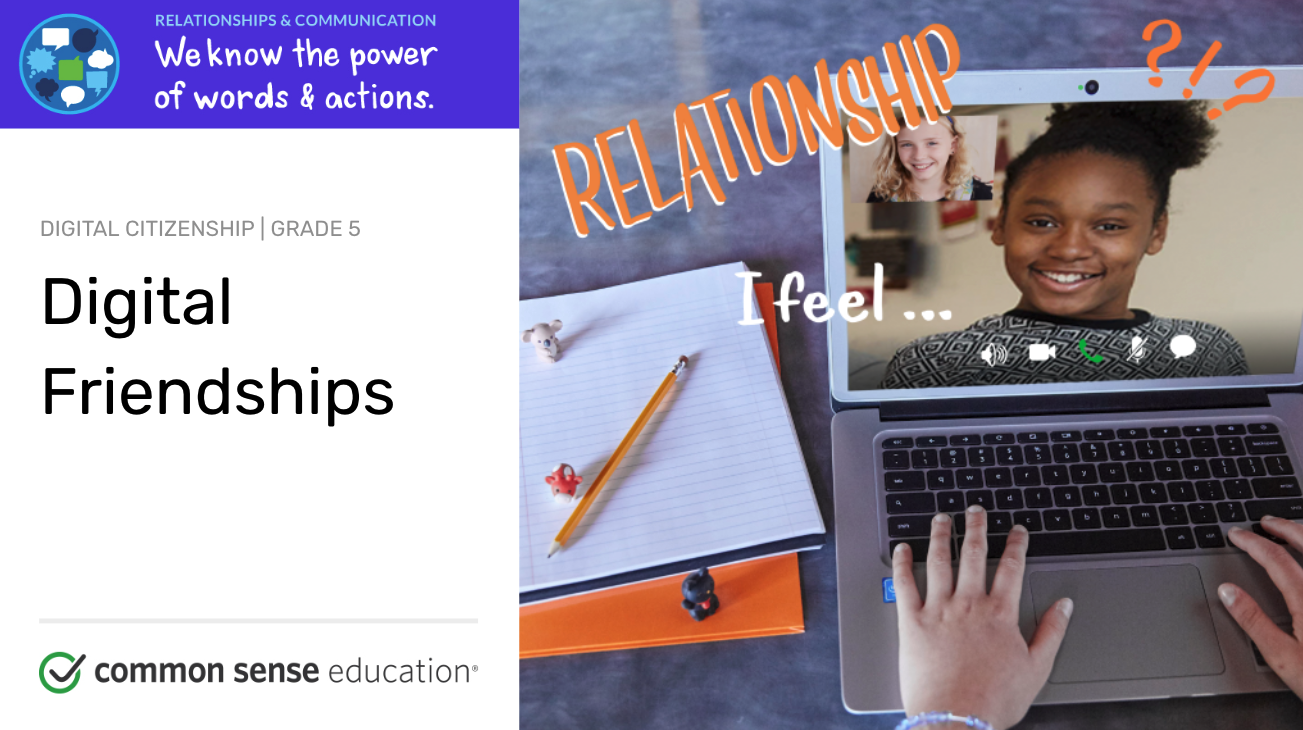April
Resources for April’s Digital Citizenship content

Relationships and Communication
Kindergarten: Media Balance is Important
How do we find a happy balance between our online and offline activities?
Students consider the feelings of themselves and others when making decisions about when, where, and how much to use technology.
Grade One: We the Digital Citizens
How can we be good digital citizens?
Students explore the amazing possibilities that come with using technology. They’ll also learn from the Digital Citizens, who take a pledge to be safe, responsible, and respectful when traveling through the online world.
How are we all part of an online community?
We are all connected on the internet! By learning the Rings of Responsibility, students explore how the internet connects us to people in our community and throughout the world. Help your students think critically about the different ways they connect with others, both in person and online.
What makes a strong online community?
Belonging to various communities is important for kids’ development. But some online communities can be healthier than others. Show your students how they can strengthen both online and in-person communities by creating norms that everyone pledges to uphold.
Grade Four: Keeping Games Fun and Friendly
How can I be positive and have fun while playing online games, and help others do the same?
Social interaction is part of what makes online gaming so popular and engaging for kids. Of course, online communication can come with some risks. Show your students how to keep their gaming experiences fun, healthy, and positive.
How do you keep online friendships safe?
Kids make friends everywhere they go — including online. But are all of these friendships the same? How can kids start online friendships and also learn ways to stay safe? Help your students understand both the benefits and the risks of online-only friendships.
Grade Six: Talking to Others Online Safely
How do you chat safely with people you meet online?
Games, social media, and other online spaces give kids opportunities to meet and chat with others outside the confines of their real-life communities. But how well do kids actually know the people they’re meeting and interacting with?
Grade Seven: Social Media and its Impact on Relationships
How does social media affect our relationships?
or most middle schoolers, being on social media can mean connecting with friends, sharing pictures, and keeping up-to-date. But it can also mean big-time distractions, social pressures, and more. Help students navigate the different feelings they may already be experiencing on social media.
Grade Eight: Risks and Consequences of Sexting
What are the risks and potential consequences of sexting?
It’s natural for teens to be curious about their emerging sexuality. But most middle-schoolers aren’t prepared for the risks of exploring this in the digital age. Help students think critically about self-disclosure in relationships and practice how they’d respond to a situation where sexting — or a request for sexting — might happen.



